Die Tübinger Universitätsklinik für Neurochirurgie und die “World Federation of Neurosurgical Societies” (WFNS) vergeben jährlich drei Stpendien über jeweils vier Monate für junge Neurochirugen aus Entwicklungsländern.
WFNS Fellowship
Report on clinical activities at the department of neurosurgery, university hospital tübingen, under
Reports on clinical activities at the department of neurosurgery, university hospital tübingen, under the wfns-aesculap adult fellowship program
Dr Campbell Francis Chukwuebuka MBBS, FWACS, MRCS (England)
WFNS clinical fellow ( April-June 2025)
This report details the clinical activities I undertook during the WFNS-Aesculap Fellowship at the Department of Neurosurgery, University Hospital Tübingen. The fellowship, generously supported by Aesculap, aims to provide young neurosurgeons, particularly from developing countries, with comprehensive exposure to advanced neurosurgical techniques and practices. The experience was a memorable one and an absolute turning point in my young career as a neurosurgeon ...
Read full report
This report details the clinical activities I undertook during the WFNS-Aesculap Fellowship at the Department of Neurosurgery, University Hospital Tübingen. The fellowship, generously supported by Aesculap, aims to provide young neurosurgeons, particularly from developing countries, with comprehensive exposure to advanced neurosurgical techniques and practices. The experience was a memorable one and an absolute turning point in my young career as a neurosurgeon. I arrived in Tübingen, Germany, on April 2, 2025, via Stuttgart Airport, and was welcomed by the beautiful scenery of the Alps as our plane descended into the landing strip. The Germans I encountered were exceptionally hospitable and willing to assist with any challenges you may face as a visitor. Tübingen is a traditional university city in central Baden-Württemberg, Germany. It is a typical student community with an immaculate environment and an excellent transportation system.
The Department of Neurosurgery at the University Hospital Tübingen is a leading neurosurgical centre in Germany. It boasts state-of-the-art facilities and performs complex neurosurgical interventions across a broad spectrum of neurosurgical subspecialties. I was warmly welcomed on my first day by the departmental secretary, who gave me a tour around the facilities and introduced me to other staff members. The department comprises various subspecialties in neurosurgery, including skull base, vascular, pediatric, functional, and oncology, and is renowned for its cutting-edge research and exceptional patient care. The daily activities typically begin with morning meetings, starting at 7:15 am, during which all patients scheduled for surgery are discussed, including the emergency cases and those in intensive care. In the meetings, an in-depth analysis of the cases, including surgical approaches and decisions, was made by all staff, including senior faculty members.

The theatre session runs from Monday to Friday, and about 12-17 cases are operated daily. The theatres are equipped with advanced surgical armamentarium, including intraoperative MRI and CT scanners, the latest Karl Zeiss microscopes, various brands of endoscopes, and a robotic machine for stereotactic biopsies, among others. Patient care is evidence-based, utilizing the latest technologies to achieve excellent surgical outcomes. I observed the remarkable synergy between the various theatre staff, who aimed to achieve smooth operations and excellent outcomes. I actively participated in numerous procedures, and we typically had a brief discussion with the lead surgeon before the surgery and some debriefing at the end of the operation. Various skull base approaches, including retrosigmoid craniotomy for vestibular schwanomma and petroclival tumours, aneurysm clipping, surgeries for intra-axial tumours, including glioblastoma and metastasis. Various spinal operations, both open and minimally invasive, were performed by the team. The outstanding aspect was the resident-centred approach, where a junior member of the team performed the initial part of the surgery, and subsequently, the senior faculty member scrubbed in to perform the more complex part of the operation.
The department also holds regular weekly academic meetings and seminars. I attended the tumour board meetings, held on Tuesdays and Thursdays afternoons, which involve teams from various subspecialties managing patients with tumours of the craniospinal axis. In addition, the department holds monthly morbidity and mortality meetings, surgical audits, and other departmental seminars, which collectively make the training in the department robust. It is customary for international fellows to give a presentation in the department about their home countries and the peculiarities of neurosurgical practice, which I did during the latter part of my stay.
I paid a visit to Aesculap AG in Tutlingen, which was my sponsor for the fellowship program. Aesculap AG is the largest company in Tuttlingen, Baden-Württemberg, Germany, and it manufactures medical devices and medical intervention technology. During the tour around their facilities, we were shown how various surgical instruments were produced from the raw material base to the finished product. Most notable is the production of aneurysm clips, which involves the highest level of precision and craftsmanship. Aesculap's array of products spans various therapeutic fields, including minimally invasive surgery, orthopaedic joint replacement and regenerative therapies, spinal surgery, neurosurgery, interventional vascular diagnostics and therapy, sterile goods management, as well as sutures and surgical specialities. They believe in quality production and maintaining the highest possible standard and quality assurance.
The department made arrangements for accommodation before my arrival, which was a short distance from the hospital, making the commute very easy. The accommodation provided was very hospitable and contained all the necessities to make my stay comfortable. I also visited some memorable tourist sites within and outside Germany. This includes the Ulm Minster, a Lutheran cathedral built in the 13th century, which was described as the tallest church in the world. I also visited the birthplace of Mozart in Salzburg, Austria, and toured the museum, which depicts the early life of Mozart and displays his first musical instruments. Additionally, I visited the residence museum in Munich, the famous Berlin Wall, and the Eiffel Tower in Paris, France. Visiting these popular and iconic sites was an unforgettable experience that allowed me to meet and make friends with other African students and tourists in Europe.
The WFNS-Aesculap Fellowship at the Department of Neurosurgery, University Hospital Tübingen, has been an invaluable and transformative experience for me. The comprehensive clinical exposure, coupled with robust academic and research opportunities, has significantly advanced neurosurgical expertise. I want to express my profound gratitude to the World Federation of Neurosurgical Societies and Aesculap AG for their generous sponsorship and to Professor Tatagiba and the entire team at the Department of Neurosurgery for their mentorship, guidance, and unwavering support throughout the fellowship. I also want to acknowledge Ms Stefanie Hilcher for her support throughout the application process and ensuring that the fellowship went hitch-free. The knowledge and skills acquired will undoubtedly contribute to improving neurosurgical care in my country.
Dr. Beda Alex Mubatsi Kundu, Final-Year Neurosurgery Resident, University of Nairobi, Kenya
WFNS clinical fellow (15th July-30th September 2025)
I am honored to present this report on my three-month fellowship in adult neurosurgery at Tübingen University Hospital, generously supported by the World Federation of Neurosurgical Societies (WFNS) and AESCULAP. I would like to sincerely thank the entire neurosurgical team at Tübingen University Hospital and the WFNS for providing me with this invaluable opportunity to learn from globally renowned neurosurgeons. This experience has been transformative, and I believe it will play a pivotal role in shaping my future career as a neurosurgeon ...
Read full report
I am honored to present this report on my three-month fellowship in adult neurosurgery at Tübingen University Hospital, generously supported by the World Federation of Neurosurgical Societies (WFNS) and AESCULAP. I would like to sincerely thank the entire neurosurgical team at Tübingen University Hospital and the WFNS for providing me with this invaluable opportunity to learn from globally renowned neurosurgeons. This experience has been transformative, and I believe it will play a pivotal role in shaping my future career as a neurosurgeon. It has been a wonderful experience, and I believe it will greatly influence my career path as a young neurosurgeon in the profession. Neurosurgery remains a developing specialty in Kenya. My experience at Tübingen University Hospital has greatly deepened my passion for the field and renewed my commitment to pursuing excellence in surgical practice. The level of expertise, precision, and professionalism I observed from the faculty was truly inspiring. I was especially moved by the mastery exhibited in the operating theaters, and I aspire to emulate this standard in my future work.
I have a strong interest in skull base neurosurgery, and the fellowship afforded me the rare opportunity to observe a wide range of complex skull base cases. The quality of surgical care and the meticulous techniques demonstrated have strengthened my resolve to pursue subspecialty training in this area. I am eager to apply for future WFNS-sponsored skull base fellowships to advance this goal. Over the course of the fellowship, I observed more than 300 surgeries, gaining a wealth of knowledge and exposure that I will carry forward into my career.
Each day presented a new and enriching learning experience. I was especially impressed by the collegial atmosphere in the operating rooms and the professionalism of the surgical teams. The commitment to patient-centered care was evident in every aspect of clinical practice, from preoperative planning to postoperative management. I am confident that the patients at Tübingen University Hospital receive world-class neurosurgical care.
The department, under the leadership of Professor Marcos Tatagiba (MD, PhD), is a model of excellence. His humility, dedication, and leadership deeply inspired me. My personal interactions with Prof. Tatagiba were among the most memorable aspects of the fellowship, and I am grateful for his mentorship and encouragement. I am deeply grateful for the opportunity to have interacted with such a great leader in the world of neurosurgery.
The teaching sessions were intellectually stimulating and clinically relevant. I had the privilege of observing a broad range of surgeries – from complex spine cases to intricate cranial procedures – performed by various experts. I am particularly grateful to:
- Professor Dr. Jürgen Honegger, who introduced me to endonasal microsurgical transsphenoidal resection of pituitary tumors – a technique I had never seen before. His clear explanations and openness to teaching made this a truly enlightening experience.
- Professor Dr. Constantin Roder, whose treatment of moyamoya disease using superficial temporal artery–middle cerebral artery bypass surgery was both novel and deeply educational for me.
- Professor Dr. Martin Schuhmann, whose soft tissue dissection skills and insights into the surgical management of craniopharyngiomas and ependymomas were exemplary. His kind and patient approach to teaching was particularly appreciated.
- I would like to extend my sincere appreciation to Dr. Sasan Adib a senior consultant in the department, for his outstanding dedication and efforts in explaining complex spine surgeries with remarkable clarity and depth. His ability to break down intricate procedures into comprehensible concepts has greatly enhanced my understanding and confidence in advancing in spine surgery. Dr. Adib’s commitment to education and knowledge-sharing is truly commendable.
During my fellowship at the Department of Neurosurgery, Tübingen University Hospital, I had the privilege of closely observing and learning from Professor Dr. Martin Schuhmann, whose surgical expertise and didactic approach were both outstanding and deeply enriching. One particularly memorable case was his transcallosal transchoroidal resection of an aqueductal ependymoma, along with residual third ventricle ependymomas. He emphasized key operative principles, such as the importance of avoiding tumor seeding by minimizing irrigation during resection, and taking special care to preserve the integrity of the fornix to prevent cognitive deficits. His precise and detailed anatomical dissection served as a masterclass in ventricular surgery and was invaluable in deepening my understanding of complex intraventricular approaches.
Equally impactful was Professor Dr. Naros, whose teaching style and surgical finesse were exemplary. He provided a comprehensive step-by-step explanation of right-sided amygdalohippocampectomy for mesial temporal lobe epilepsy, ensuring a clear understanding of the rationale behind each maneuver. His surgical precision was further evident during microvascular decompression procedures for trigeminal neuralgia and in the meticulous resection of vestibular schwannomas, where he consistently demonstrated an exceptional command of microsurgical technique and anatomical detail.
Finally, working with Professor Dr. Marcos Tatagiba was a profoundly educational experience. His meticulous execution of the retrosigmoid approach to vestibular schwannoma, particularly in the semi-sitting position, was exceptional. He consistently preserved critical neurovascular structures, emphasizing anatomical respect and intraoperative patience. One key principle he instilled was the importance of preserving the superior petrosal vein when possible, in order to prevent cerebellar or even brainstem infarcts – an insight that significantly impacted my surgical judgment. His surgical precision was also evident in spinal canal decompressions, where he demonstrated thoughtful technique and an unwavering commitment to patient safety.
For the first time in my training, I also observed peripheral nerve surgery – an area with limited exposure in my home country – which further expanded my surgical horizons.
The hospital’s infrastructure was outstanding, with multiple concurrent surgeries taking place in highly advanced operating rooms. The use of state-of-the-art equipment – including the Kinevo 900 microscope, intraoperative neuronavigation, endoscopes, and real-time imaging (CT and MRI) – greatly enhanced the surgical experience. The AESCULAP instruments, including the Rhoton microdissectors, performed flawlessly, highlighting the importance of reliable surgical tools in achieving optimal outcomes and preserving critical neurovascular structures.
Expanded Section – Skull Base Training Course and Surgical Techniques
During the dedicated skull base training course, I had the exceptional opportunity to observe numerous complex cases involving cerebellopontine angle (CPA) tumors, including vestibular schwannomas and meningiomas, each approached with individualized surgical strategies tailored to the pathology and anatomy.
One of the most striking experiences was observing the use of the semi-sitting position in the retrosigmoid approach for the resection of a T3–T4 vestibular schwannoma. This approach, rarely practiced in my region due to its associated risks – such as air embolism – was executed with remarkable precision by Professor Tatagiba and his team. The meticulous intraoperative monitoring and strict adherence to safety protocols demonstrated how this technically demanding position can be used to maximize surgical exposure while minimizing cerebellar retraction.
Despite the complexity and the inherent risks, the surgical team performed the procedure flawlessly, with no intraoperative or postoperative complications. Witnessing such a high-risk procedure executed with confidence, control, and excellent outcomes was not only educational but also deeply inspiring. It emphasized the importance of rigorous training, preoperative planning, and the value of teamwork in executing technically challenging procedures safely.
The diversity of surgical approaches to CPA tumors I observed – including the retrosigmoid and midline suboccipital sub tonsillar approaches – provided a solid foundation in skull base anatomy and surgical decision-making. These insights will significantly contribute to my future aspirations of specializing in skull base neurosurgery.
The daily morning conferences were a highlight – rigorous, case-based discussions attended by professors and residents alike, reflecting the team’s commitment to collaborative learning and patient safety.
Overall, patient care at Tübingen – from preoperative assessment to postoperative follow-up – was exemplary, and I observed a seamless, efficient system supported by highly skilled professionals at every level. My interactions with faculty, residents, nurses, and support staff were consistently warm, respectful, and enriching.
I would like to extend my deepest appreciation to Professor Dr. Marcos Tatagiba and the WFNS-AESCULAP Fellowship Committee for this life-changing opportunity. My time at Universitätsklinikum Tübingen has been a personal and professional milestone. I also wish to thank Ms. Stefanie Hilcher, the visitors’ coordinator, whose warm welcome and ongoing support made my stay smooth and comfortable.
This fellowship has reinforced my belief in the power of teamwork, dedication, and continual learning. I return to Kenya deeply inspired and better equipped to contribute to the growth of neurosurgery in my country.
Zertifikate und Verbände

Focus: Top Nationales Krankenhaus 2025

Stern: Deutschlands Ausgezeichnete Arbeitgeber Pflege 24/25

Qualitätspartnerschaft mit der PKV

Erfolgsfaktor Familie

Die Altersvorsorge für den Öffentlichen Dienst





